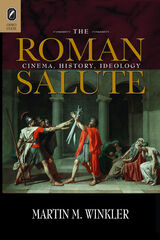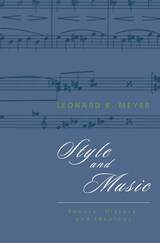2 books about History Ideology

The Roman Salute
Cinema, History, Ideology
Martin M. Winkler
The Ohio State University Press, 2009
The raised-arm salute was the most popular symbol of Fascism, Nazism, and related political ideologies in the twentieth century and is said to have derived from an ancient Roman custom. Although modern historians and others employ it as a matter of course, the term “Roman salute” is a misnomer. The true origins of this salute can be traced back to the popular culture of the late nineteenth and early twentieth centuries that dealt with ancient Rome: historical plays and films. The visual culture of stage and screen from the 1890s to the 1920s was chiefly responsible for the wide familiarity of Europeans and Americans with forms of the raised-arm salute and made it readily available for political purposes.
The Roman Salute: Cinema, History, Ideology by Martin M. Winkler presents extensive evidence for the modern origin of the raised-arm salute from well before the birth of Fascism and traces its varieties and its dissemination. The continuing presence of certain aspects of Fascism makes an examination of all its facets desirable, especially when the true origins of a symbol as potent as the salute and the history of its dissemination are barely known to classicists and historians of ancient Rome on the one hand, and to scholars of modern European history, on the other. Thus this book will appeal to classicists and historians, including film historians, and will be of interest to readers beyond the academy.
[more]

Style and Music
Theory, History, and Ideology
Leonard B. Meyer
University of Chicago Press, 1997
Leonard Meyer proposes a theory of style and style change that relates the choices made by composers to the constraints of psychology, cultural context, and musical traditions. He explores why, out of the abundance of compositional possibilities, composers choose to replicate some patterns and neglect others.
Meyer devotes the latter part of his book to a sketch-history of nineteenth-century music. He shows explicitly how the beliefs and attitudes of Romanticism influenced the choices of composers from Beethoven to Mahler and into our own time.
"A monumental work. . . . Most authors concede the relation of music to its cultural milieu, but few have probed so deeply in demonstrating this interaction."—Choice
"Probes the foundations of musical research precisely at the joints where theory and history fold into one another."—Kevin Korsyn, Journal of American Musicological Society
"A remarkably rich and multifaceted, yet unified argument. . . . No one else could have brought off this immense project with anything like Meyer's command."—Robert P. Morgan, Music Perception
"Anyone who attempts to deal with Romanticism in scholarly depth must bring to the task not only musical and historical expertise but unquenchable optimism. Because Leonard B. Meyer has those qualities in abundance, he has been able to offer fresh insight into the Romantic concept."—Donal Henahan, New York Times
Meyer devotes the latter part of his book to a sketch-history of nineteenth-century music. He shows explicitly how the beliefs and attitudes of Romanticism influenced the choices of composers from Beethoven to Mahler and into our own time.
"A monumental work. . . . Most authors concede the relation of music to its cultural milieu, but few have probed so deeply in demonstrating this interaction."—Choice
"Probes the foundations of musical research precisely at the joints where theory and history fold into one another."—Kevin Korsyn, Journal of American Musicological Society
"A remarkably rich and multifaceted, yet unified argument. . . . No one else could have brought off this immense project with anything like Meyer's command."—Robert P. Morgan, Music Perception
"Anyone who attempts to deal with Romanticism in scholarly depth must bring to the task not only musical and historical expertise but unquenchable optimism. Because Leonard B. Meyer has those qualities in abundance, he has been able to offer fresh insight into the Romantic concept."—Donal Henahan, New York Times
[more]
READERS
Browse our collection.
PUBLISHERS
See BiblioVault's publisher services.
STUDENT SERVICES
Files for college accessibility offices.
UChicago Accessibility Resources
home | accessibility | search | about | contact us
BiblioVault ® 2001 - 2024
The University of Chicago Press









